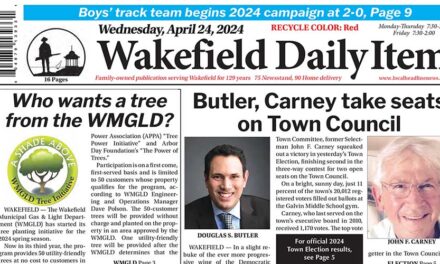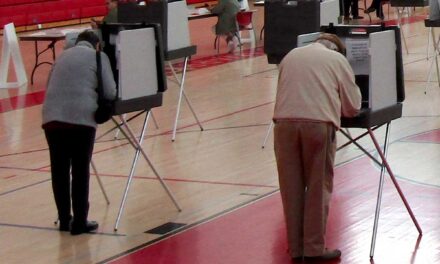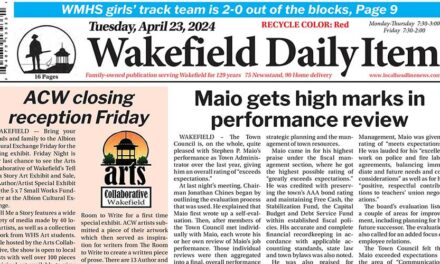Published in the August 29, 2019 edition.
By MARK SARDELLA
WAKEFIELD — The immediate impact of an August 1 Federal Communications Commission ruling that many feared could have devastating consequences on funding for local cable operations may be delayed, at least in the short term, for organizations like Wakefield Community Access Television (WCAT).
The FCC ruling allows cable companies like Comcast, Verizon and RCN to effectively subtract the cost of work they do on supporting infrastructure and non-cable-related costs (like internet upgrades) from the franchise fees they pay to cities and towns for the use of public ways and utility poles. Most cities and towns dedicate the lion’s share of those franchise fees (capped at 5 percent of the company’s gross local revenue) to local public access TV operations like the nonprofit WCAT. Any significant reduction in those fees could greatly impair the ability of local channels to function and to continue providing local coverage of public meetings and other community events.
But according to staff at WCAT, any local impact on their operations, while still a long-term concern, does not appear to be imminent.
One aspect of the FCC decision appears to have been put on hold. Cable companies assign a monetary value to channel slots, such as the positions on the cable lineup for CNN, ABC, NBC and Fox News. Another aspect of the FCC decision would have allowed cable companies to also assign a value to local public, educational and government access channel slots and charge municipalities accordingly, according to WCAT Chief Engineer Ian McDemott. The cost of those channels could effectively wipe out the franchise fees paid to the town.
However, due to pushback from public access advocates, local officials and members of Congress, that part of the FCC ruling has been halted for the time being, said WCAT General Manager Tom Stapleton.
The other parts of the decision — giving cable companies the ability to deduct the cost of infrastructure upgrades from franchise fees — remains a real possibility, according to McDermott. However, he feels that the cable companies won’t be in any rush to start taking advantage of those provisions in the Northeast.
“A lot of that was aimed at the Midwest,” McDermott says. Some Midwestern towns would seek to have the cable companies replace things like traffic lights, he says. The cable companies were seeking to recover some of those costs.
McDermott feels that the cable companies are likely to test the waters in other parts of the country first, before they try attacking the fees paid to local cable operations here in the Northeast, where they are likely to face more legal and public relations blowback.
But he figures that organizations like WCAT will feel the impact of these charges sooner or later.
“The worry is that they will keep nickel and diming us with these add-ons,” he said.




